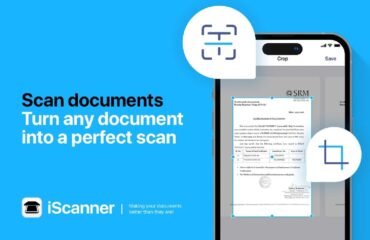
Signing out of account, Standby…
Keep more of the value your business generates by following these tax time tips.
While there are other benefits, one of the most important reasons you’re in business is to make money. And it stands to reason that if you’re in business, you’d like to keep as much of what you generate as possible. That could be why so many people hate paying taxes.
But if you’re doing your bookkeeping correctly, you’ll find there are ways to keep some of the value your business generates. All you want to do is pay your fair share. And keep what’s left to run a successful small business or grow that business into something even bigger.
Above all, remember that you pay taxes on your profit, and your profit is your income minus your ordinary expenses; you report this to the IRS every year on Schedule C. So when you sit down to do your taxes or hand your information over to your tax accountant, you should be sure you’ve tracked every single business expense.
Related: These Are the Top Tax Filing Mistakes Made by Small Business Owners (and How to Avoid Them)
What deductions are obvious? Anything you buy that directly affects your business and is used for your business. If you’re in construction, it’s the cost of your equipment and raw materials. If you’re a web designer, it’s the software you use. Look at Schedule C and you’ll see the obvious ones: advertising, office expenses, licenses, utilities and more.
You need to be careful defining some expenses, especially if you’re running your business out of your home. Yes, you can deduct the part of your home that you use exclusively and regularly for business. But if you work weekdays at your home office and watch football from it on Sunday, it’s not exclusive to your business. If you only do your month-end bookkeeping in it — even if that’s all you do in it — once-a-month office use is not considered regular use.
But when you’re assembling your receipts or downloading expense data from your small business financial management system to provide to your tax accountant, there are certainly some expenses that you might not have thought to include. There may be other expenses you claim that are not eligible deductions. If filed in error, these mistakes could cost you fines — or worse — if you’ve deducted more than you should have or are permitted to.
Related: Here’s Why It Pays to Track Every Tiny Business Expense
While Schedule C enumerates 21 types of expenses, you still might miss some perfectly legal deductions. For instance:
Related: 75 Items You May Be Able to Deduct from Your Taxes
Just remember, you can’t deduct what you aren’t tracking. Prior to the 1980s, you didn’t have many options — record-keeping systems included paper, pencils and file cabinets. The late 20th century made spreadsheets an option, which required ensuring formulas were put into the correct cells as well as remembering where the related backup documentation was saved.
The modern era has given way to even better ways of tracking information, and distilling years of accounting and bookkeeping know-how into an easy-to-use software platform. Now you can stay on top of all of the purchase orders, invoices and receipts you’ll need as a backup to your accounting records. And, have them all safe in a cloud-based system. Files, images, emails and scanned paper documents can be captured from a mobile device or a computer and stored safely online. You can categorize all transactions easily by account category and relevant tax schedule for subsequent reporting and filing.
These systems can be accessed from anywhere your business takes you, from home office to factory floor to out-of-state business pitch. You can pull them up when needed (such as for a loan application, a meeting with your accountant or deciding on financing a business improvement).
Consider financial document management solutions that can also automatically extract data from these documents. Instead of keying these numbers into a spreadsheet or paying your tax accountant to do this manual work, systems like Neat automatically feed financial data to accounting and tax software. These systems can make it easier to account for all of your business expenses — the obvious ones and those that can be often overlooked.
Related: The Most Forgotten Tax Deductions Business Owners Should Take
This Co-Founder Was Kicked Out of Retailers for Pitching a ‘Taboo’ Beauty Product. Now, Her Multi-Million-Dollar Company Sells It for More Than $20 an Ounce.
Have You Ever Obsessed Over ‘What If’? According to Scientists, You Don’t Actually Know What Would Have Fixed Everything.
After He Was Fired From the UFC, This Former Fighter Turned His Passion Into a Thriving Business
Most People Don’t Know These 2 Things Are Resume Red Flags. A Career Expert Reveals How to Work Around Them.
How One Woman Turned Pandemic-Induced Boredom and a Makeshift Garage Art Studio Into a Thriving Franchise
Use These 4 Self-Care Rituals for More Resilience and Less Depletion
Shark Tank’s Barbara Corcoran Wants to Invest in ‘Someone Who Probably Needs a Good Shrink Instead of a Business’
Ben Angel
Bryan Lovgren
Jacqueline Whitmore
Subscribe to our Newsletter
The latest news, articles, and resources sent to your inbox.
I understand that the data I am submitting will be used to provide me with the above-described products and/or services and communications in connection therewith.
Read our privacy policy for more information.
Copyright © 2023 Entrepreneur Media, Inc. All rights reserved.
Entrepreneur® and its related marks are registered trademarks of Entrepreneur Media Inc.
Successfully copied link




